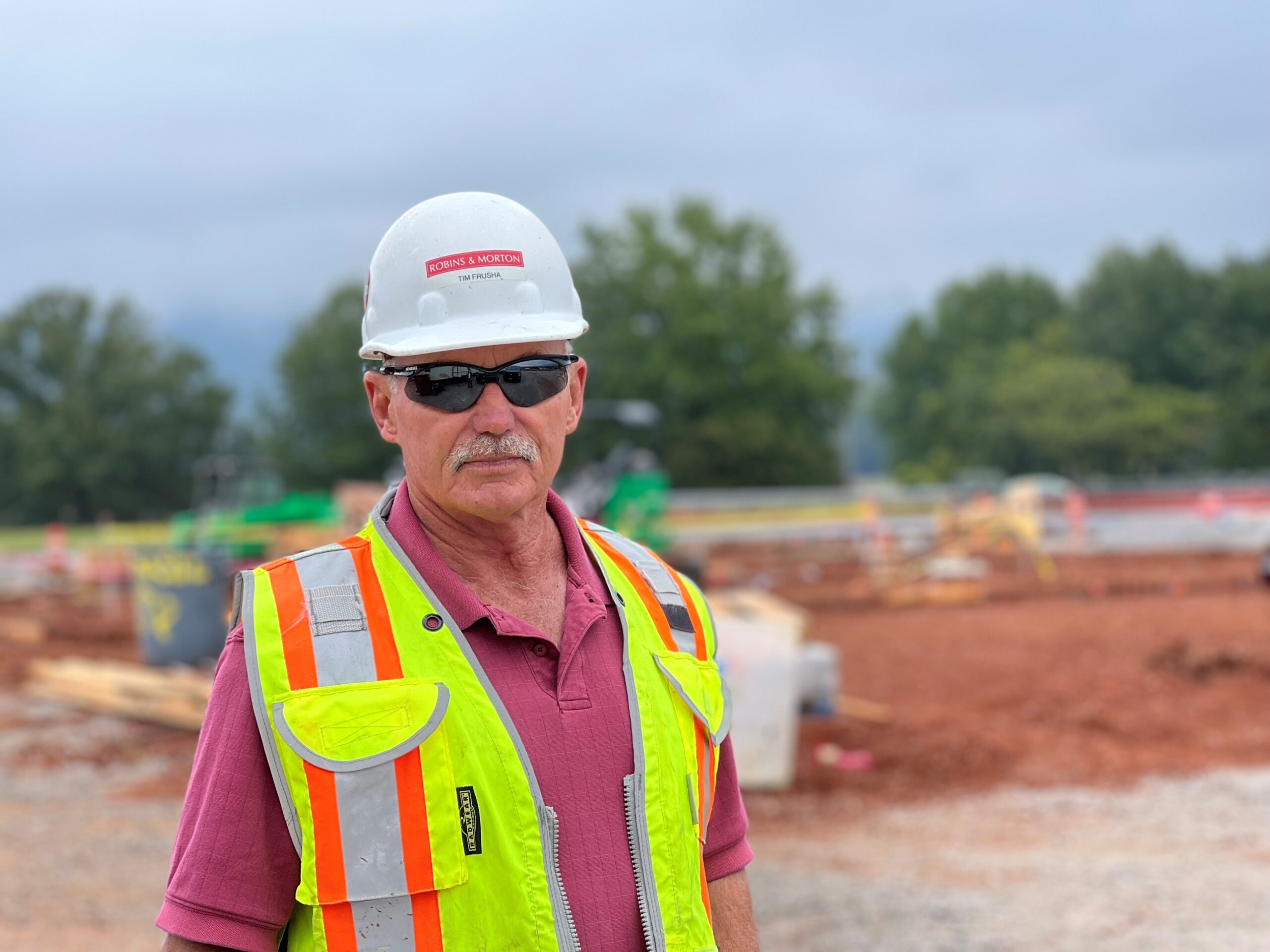As Superintendent Tim Frusha looks back over his 25-year construction career, an adage comes to his mind: remember where you came from.
For Frusha, this means reflecting on the many unique circumstances that brought him from Texas to Huntsville, Alabama—the place he’s called home for 20 years. Several of those circumstances include an enlistment in the Army’s 82nd Airborne Division and working in the oilfields, but it was when he landed in Montgomery, Alabama, years later that he began a lasting career. In 1997, Frusha took on his first job at Robins & Morton, working as a laborer at Jackson Hospital.
As a newcomer to the construction industry, his work there was a learning experience, but he credits the project leadership with understanding the importance of mentorship.
Although Frusha didn’t have any experience or formal education in construction management, he has a strong work ethic and wanted to learn the business. That was all it took for his Robins & Morton managers to commit to investing in his hands-on education, allowing him to grow into the manager-in-charge position he’s in today.
Remembering where he started in his career fuels Frusha to share his experiences and he believes that construction professionals have a responsibility to improve the industry and its workforce prospects through knowledge transfer to both incoming professionals as well as youth in the early stages of determining their career paths.
“We need to better communicate the benefits of construction work to young people,” Frusha said. “College is a great way to learn, but it’s not the only way. When you learn a trade, there’s so much room for advancement.”
Frusha speaks from experience, as he’s been able to earn a senior level management position onsite without a construction management or engineering degree. However, while Frusha’s story is unique, his career trajectory is not. There are many construction team members that took on more advanced roles through experience and a desire to learn, but ensuring they have an opportunity to reach their potential begins with management’s commitment to mentorship.
“It’s important [as a manager] that I remember what it was like when I was starting out so that I can teach better,” Frusha said.
Frusha has carried that mindset with him from his very first project to 34 more in the healthcare, municipal, hospitality and commercial office sectors, totaling nearly $300 million.
“Although my kids are grown and out of the house now, it’s really a special thing to be able to show them the outcome of my work,” Frusha said. “What we do in construction makes a tangible difference, and hard work pays in dividends.”

